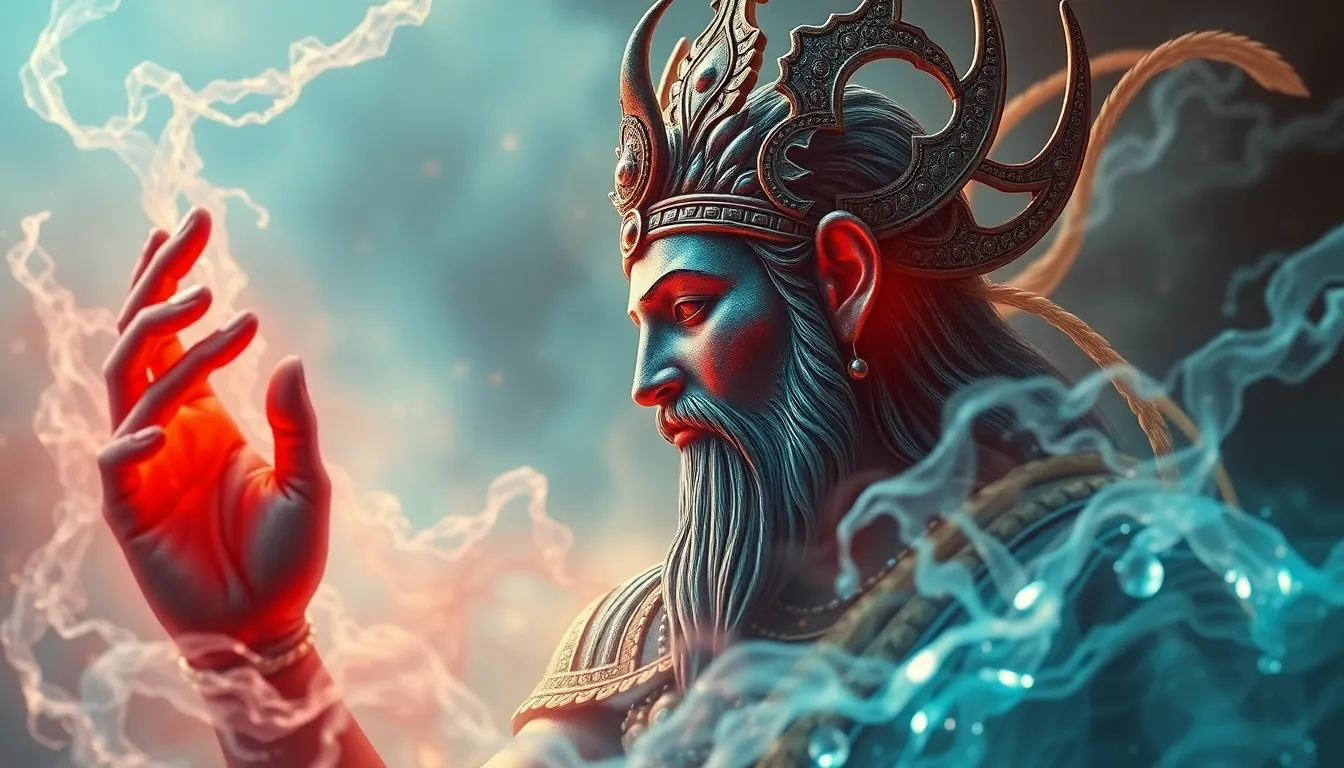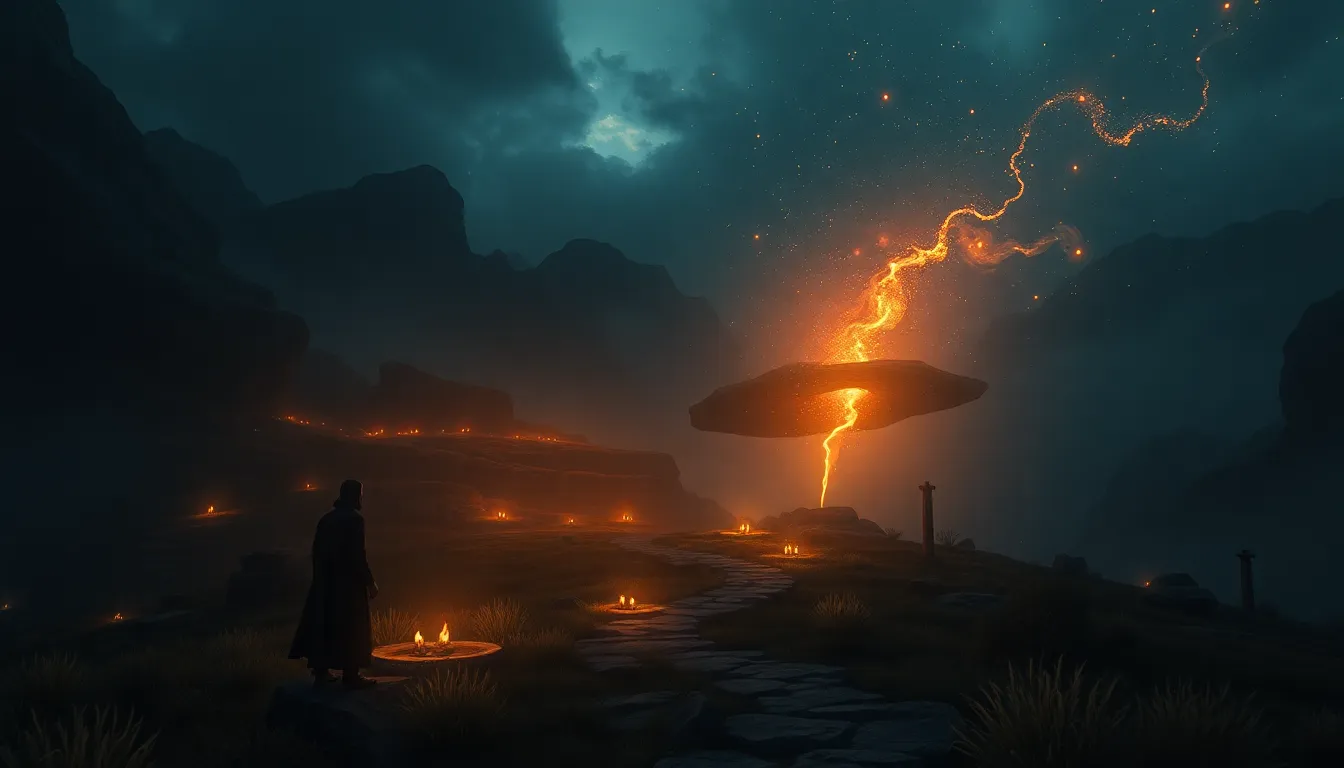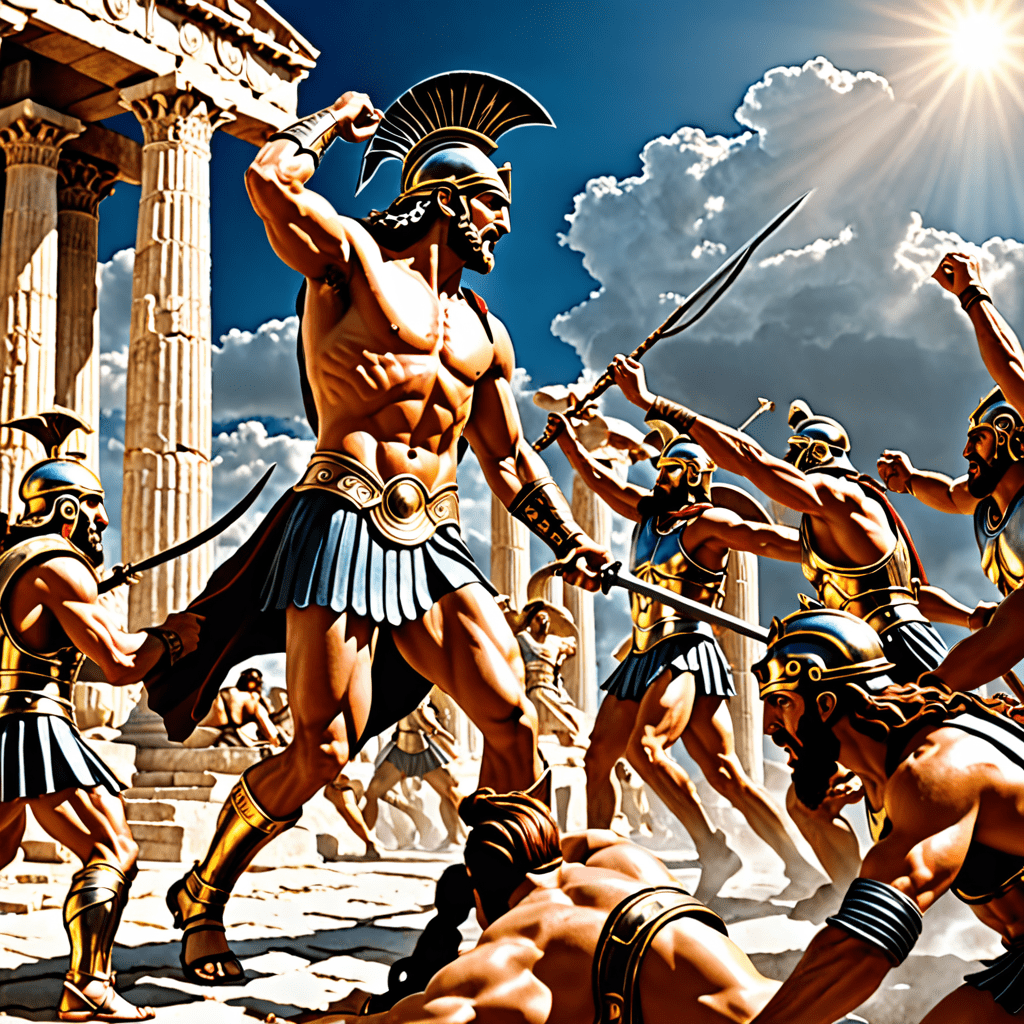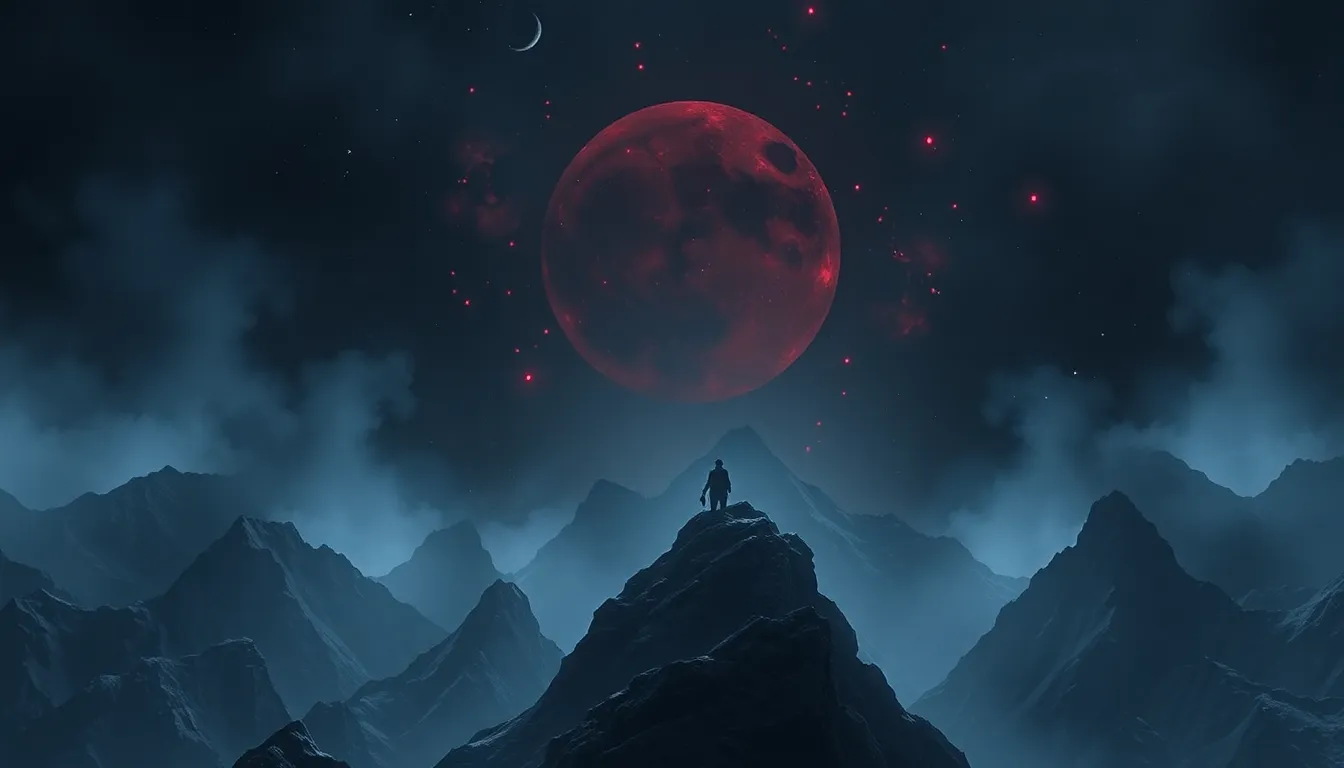Ancient Deities and Their Role in Human Emotion: Myths of Love and Loss
I. Introduction
Throughout history, ancient deities have played a significant role in shaping human culture and societal norms. These divine figures, often representing various aspects of life, have been central to myths that explore the complexities of human emotion. This article seeks to delve into the intricate connection between mythology and human emotions, particularly focusing on the themes of love and loss as represented by ancient gods and goddesses. By examining these myths, we can uncover the profound ways in which they illuminate our understanding of these universal experiences.
II. The Concept of Love in Ancient Mythology
Love is a multifaceted emotion that has been interpreted differently across various cultures. In ancient mythology, love was often celebrated, feared, and revered, serving as a catalyst for numerous stories and conflicts.
A. Definition of Love in Different Cultures
Different cultures have defined love in various ways, often intertwining it with other virtues such as loyalty, sacrifice, and passion. For example:
- Greek Mythology: Love is often portrayed as a powerful, sometimes chaotic force, epitomized by deities like Aphrodite and Eros.
- Hindu Mythology: Love is seen as a divine connection, often illustrated through the stories of Radha and Krishna.
- Roman Mythology: Venus, the goddess of love, embodies the ideal of romantic love and beauty.
B. Key Deities Associated with Love
Among the most significant deities associated with love are:
- Aphrodite: The Greek goddess of love, beauty, and desire, often depicted as the epitome of romantic attraction.
- Eros: The Greek god of love, known for his mischievous nature and ability to incite desire.
- Venus: The Roman counterpart of Aphrodite, representing both romantic and platonic love.
C. Love as a Driving Force in Myths and Stories
Love serves as a crucial driving force in many myths, leading to the creation of heroes, the initiation of quests, and the unfolding of tragic narratives. The powerful emotions associated with love often propel characters into action, resulting in profound consequences.
III. The Impact of Loss in Ancient Myths
Loss and grief are universal human experiences that have been explored through the lens of mythology across cultures. These narratives often provide insight into how ancient societies understood and processed these emotions.
A. Understanding Loss and Grief in Ancient Societies
Loss, whether through death, separation, or betrayal, was a significant theme in ancient myths, reflecting the realities of life and the human condition. Myths provided a framework for understanding grief and the rituals surrounding it.
B. Deities Representing Loss and Mourning
Several deities symbolize loss and mourning, including:
- Hades: The Greek god of the underworld, representing the finality of death and the loss of loved ones.
- Persephone: Queen of the underworld, whose annual descent symbolizes the cycle of loss and renewal.
- Osiris: In Egyptian mythology, the god of the afterlife, representing death and resurrection.
C. Stories That Illustrate the Emotional Journey of Loss
Myths such as the story of Orpheus and Eurydice illustrate the profound emotional journey associated with loss. Orpheus’s descent into the underworld to retrieve his beloved Eurydice serves as a poignant reminder of the lengths to which love drives us, even in the face of irrevocable loss.
IV. The Interplay Between Love and Loss in Myths
The relationship between love and loss is complex and often intertwined in mythological narratives, highlighting the duality of these emotions.
A. How Love Can Lead to Loss in Mythological Narratives
Many myths demonstrate how love can lead to loss, often resulting in tragedy. The intense emotions tied to love can lead to conflict, sacrifice, and ultimately, grief.
B. Case Studies: Notable Myths Depicting the Cycle of Love and Loss
One of the most notable examples is the myth of Orpheus and Eurydice. Orpheus, a gifted musician, descends into the underworld to reclaim his wife, only to lose her again due to his inability to follow the rules set by Hades.
C. The Emotional Lessons Conveyed Through These Narratives
Such myths convey important emotional lessons about the nature of love and the inevitability of loss, teaching that both emotions are essential parts of the human experience.
V. Cultural Variations in Love and Loss Myths
While the themes of love and loss are universal, different cultures express these concepts through their unique deities and narratives.
A. Comparison of Different Cultures’ Deities of Love
Comparing deities of love reveals both similarities and differences:
- Hinduism: Radha and Krishna represent divine love, emphasizing devotion and spiritual connection.
- Mesopotamian Mythology: Inanna, the goddess of love and war, embodies the complexities of love intertwined with conflict.
- Japanese Mythology: The Shinto goddess Izanami represents both creation and loss, reflecting the dual nature of love.
B. Unique Approaches to Loss Across Cultures
Different cultures also approach loss in varied ways:
- Egyptian Mythology: Emphasizes the afterlife and the continuity of the soul beyond death.
- Norse Mythology: Focuses on the inevitability of fate and the acceptance of loss as part of life.
C. Common Themes and Divergences in Emotional Expression
While the expression of love and loss varies, common themes emerge, such as the transformative power of love and the universal experience of grief.
VI. The Role of Deities in Human Relationships
Ancient deities significantly influenced human beliefs about love and relationships, shaping societal norms and practices.
A. How Ancient Deities Influenced Human Beliefs About Love and Relationships
Worshipping love deities often reinforced societal values surrounding relationships, fidelity, and romantic pursuit.
B. Rituals and Practices Honoring Love Deities
Many cultures developed rituals to honor love deities, including:
- Festivals celebrating love and fertility.
- Rituals for matchmaking and marital blessings.
C. The Societal Impact of These Myths on Interpersonal Connections
The myths surrounding love deities helped establish norms around courtship, marriage, and family dynamics, influencing how relationships were formed and maintained.
VII. The Psychological Perspective: Ancient Myths and Modern Emotions
The relevance of ancient myths extends beyond historical interest; they resonate with contemporary understandings of human emotions.
A. The Relevance of Ancient Myths to Contemporary Understandings of Love and Loss
Modern psychology often draws parallels between mythological narratives and emotional experiences, illustrating how ancient stories can still provide insights into human behavior.
B. Psychological Theories Related to Mythological Narratives
Psychological theories, such as archetypal analysis, emphasize the universal themes found in myths, suggesting that these narratives reflect deep-seated human emotions and experiences.
C. How These Stories Can Aid in Emotional Healing and Understanding
Engaging with these myths can facilitate emotional healing, offering perspectives on love, grief, and the human condition.
VIII. Artistic Representations of Love and Loss in Ancient Cultures
The themes of love and loss have inspired countless artistic expressions across cultures.
A. Exploration of Art, Literature, and Theater Depicting Love and Loss Deities
From ancient sculptures to epic poems, love and loss deities have been depicted in various art forms, reflecting their significance in human culture.
B. Symbolism and Themes in Visual Representations
Artistic representations often utilize symbolism to convey the complexity of these emotions, employing imagery of nature, transformation, and the cycle of life and death.
C. The Influence of Mythology on Modern Artistic Expressions of Love and Loss</



